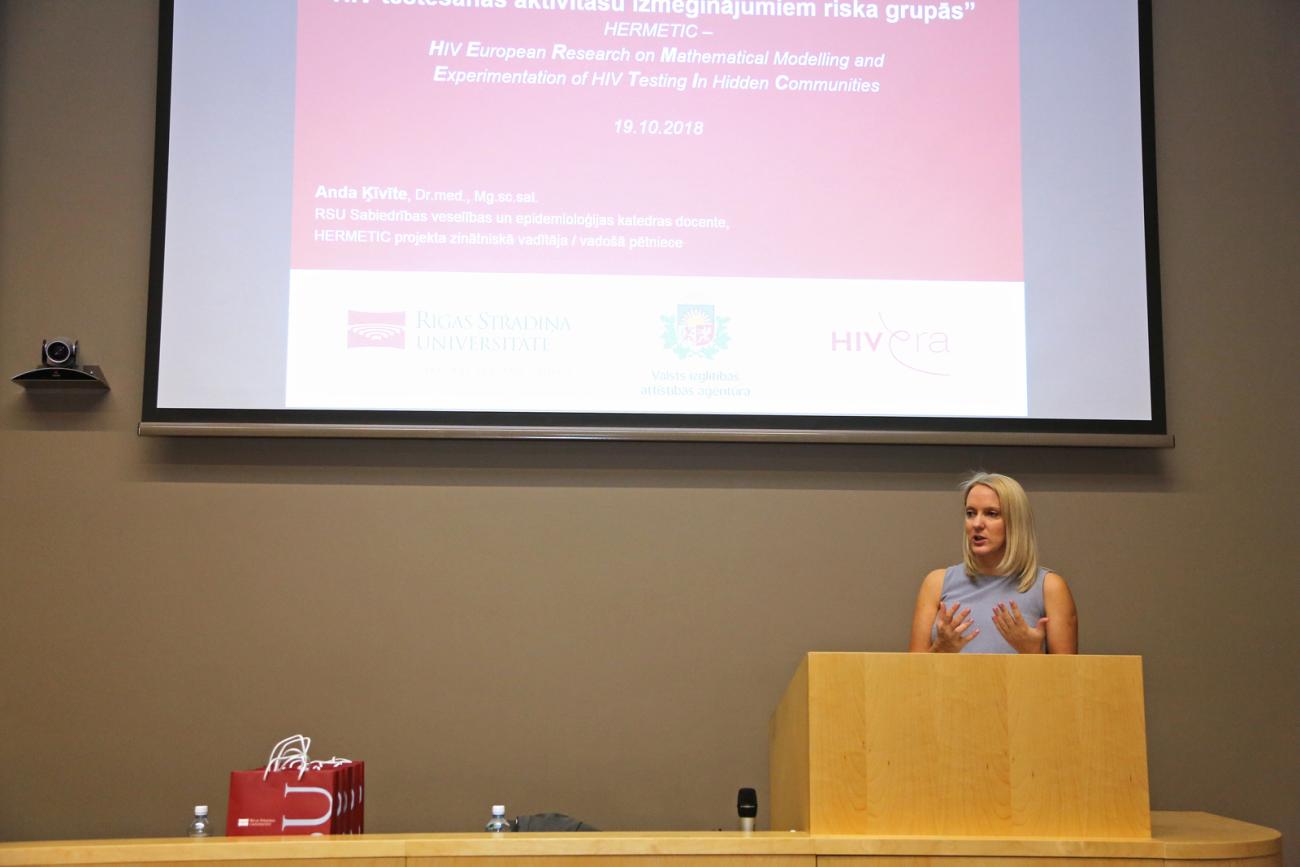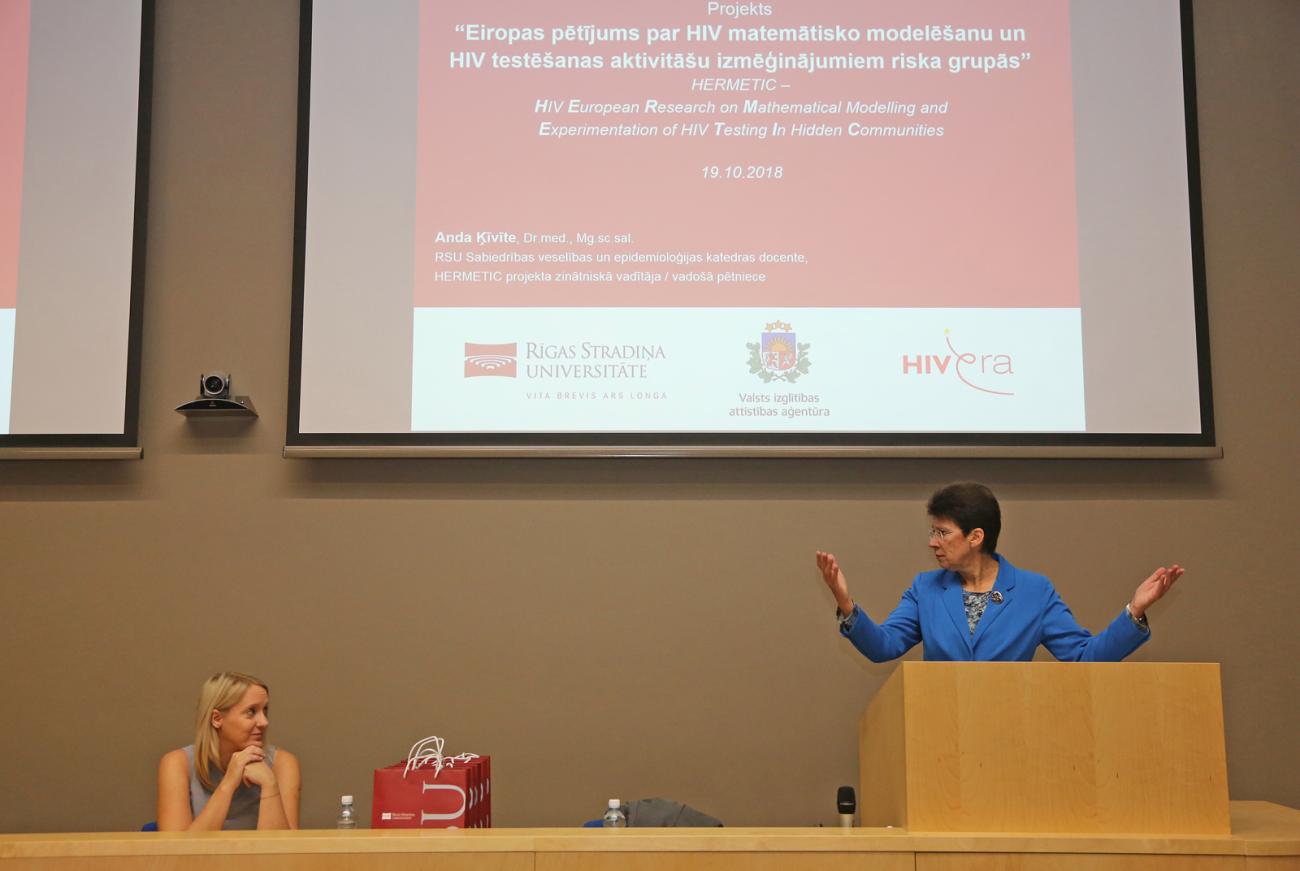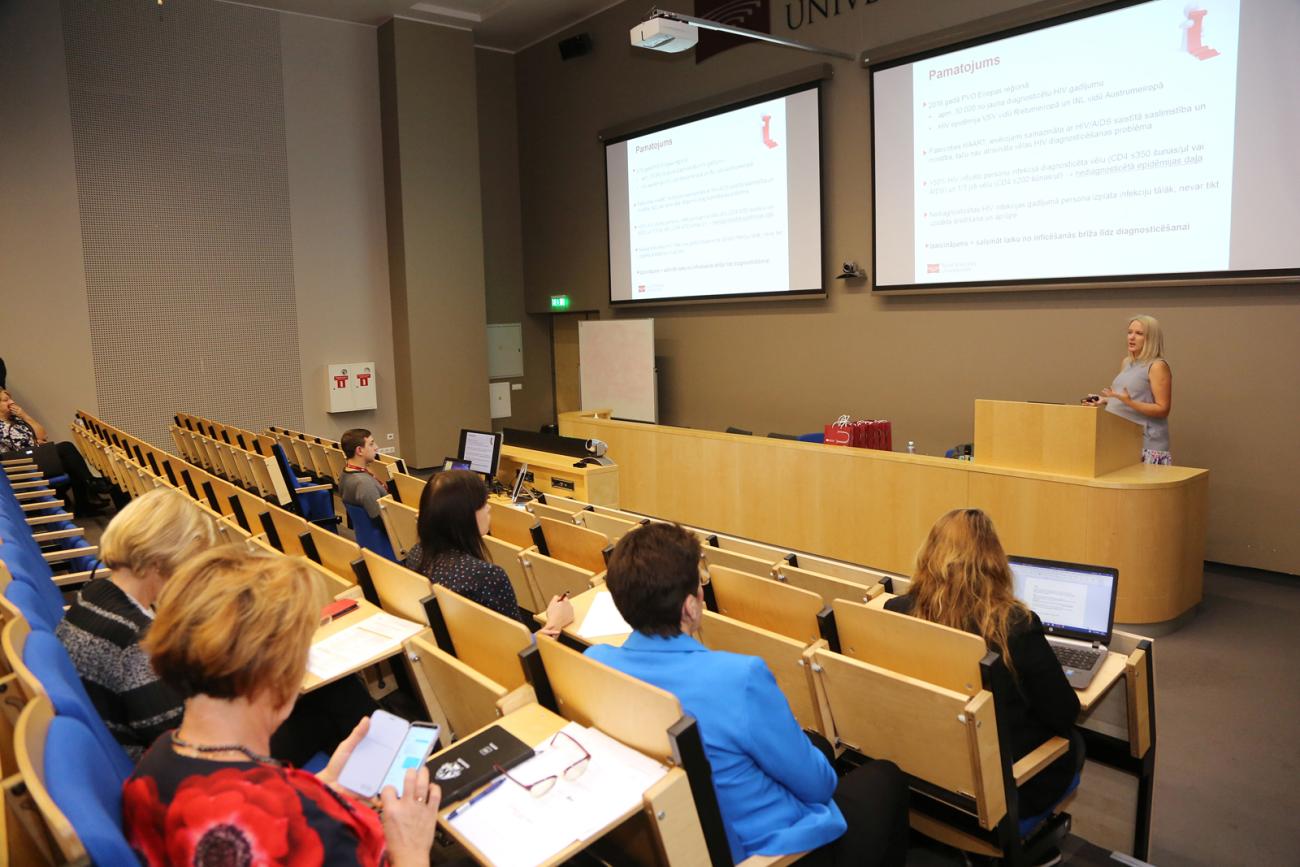International study concludes: actual HIV transmission in Latvia is higher by one third
Currently the number of HIV-positive persons who are unaware of their disease is around 1800, as concluded after carrying out a mathematical modelling study. The international project was initiated in 2015 and carried out by Rīga Stradiņš University, in cooperation with institutions from France, Belgium and Estonia. The results that cover actual HIV transmission in Latvia and current identification approaches will be presented on 19 October during the concluding seminar at the RSU Medical Education Technology Centre.
Taking into account the size of the population, Latvia is a leading country in Europe in terms of HIV infection and AIDS cases by outpacing the leader of the past year – Estonia.
According to the data provided by the Centre for Disease Prevention and Control, as of 1 July the number of persons diagnosed with HIV was 5576, whereas, the actual number of people infected with the disease is greater by 34%, as concluded in the study that involves mathematic modelling methods. In other words, in reality there are more than 7400 HIV-infected people or around four persons in 1000.
Proportionally, 50% out of 1800 persons who are unaware of their diagnosis are infected during heterosexual intercourse, 35% - by using non-sterile instruments while injecting drugs, whereas 15% - during homosexual intercourse.
Scientific manager of the project, RSU Assistant Professor and leading researcher of the Institute of Public Health Anda Ķīvīte will give a detailed presentation on the results of the project in Latvia and other member countries. European research on mathematical modelling and experimentation of HIV testing in hidden communities was held from November 2015 to October 2018 in cooperation with AIDES (France), The Institute of Tropical Medicine (Antwerp) and the National Institute for Health and Development (Estonia). The leading partner of the research was the French National Institute of Health and Medical Research (INSERM). Data for carrying out mathematical modelling in Latvia were provided by the Centre for Disease Prevention and Control.
Results of the pilot project will be presented during the seminar. An innovative HIV testing method – an oral secretion test or so called “saliva rapid test” was applied in Latvia for the first time. Researchers used this test for the population at greater risk for HIV infection – persons who inject drugs and male homosexuals. The present pilot research led to the approbation of a new HIV detection strategy and reduce the number of undiagnosed HIV infection cases within the above-mentioned groups.















